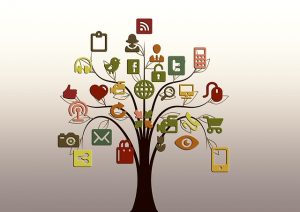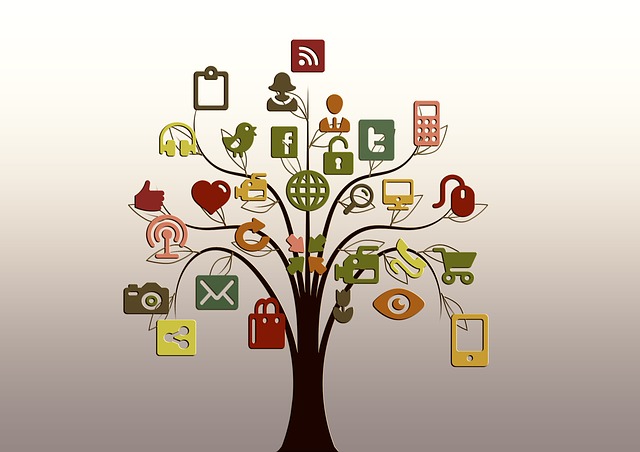Facebook, media, human nature and free will
 Understand the algorithm
Understand the algorithm
It started innocently enough. I would take an occasional hit every so often during the day. Then things started to get out of control. I noticed the signs of addiction creeping into my life.
I would have trouble focusing. I would find myself losing entire chunks of my work day and not knowing where they went. I would need my fix right away in the morning before anything else. I had it always available so I wouldn’t ever be without.
I needed an intervention. I took Facebook off my phone. I took the Facebook messenger off the phone. I deleted all the browser bookmarks for news sites.
I feel better. I miss it. I feel like I’m missing out. But I feel healthier. I choose when and how to interact with social media. I’m not a dancing monkey frantic for treats.
Social media, and I include the popular ‘news’ sites in that definition, is not evil, well it’s not overtly evil, but it is designed to get our attention, to keep our attention and to garner more and more of our attention.
…
Social media, and media in general, is trying to manipulate us. Media is after something from us. When we participate we are part of a transaction. Media gives us bits of stimulation and for that we trade our attention and our intention.
It has always been this way, but the internet gives media excellent tools to get our attention. Algorithms are tireless in their pursuit of our attention. It’s always on and it’s always thinking one or two steps ahead. It’s like being on a diet and having someone leaving Maple Cream donuts fresh out of the oven in every room you enter.
I’m not bashing any particular site or organization or even social media. I use it to get what I want. I’m part of the game. But, I do think we have to understand what the exchange is and go into that with our eyes open.
What is the goal or the purpose of media? It’s not just Facebook or Twitter. It’s not just television and popular news media sites. It is the nature of media to vie for our attention.
What is the underlying purpose? It’s to make money of course. If you want to be even more abstract it’s about power. Money is a manifestation of power. To make money a product must be sold. That product at the end of the day could be golf clubs, life insurance or weight-loss…it doesn’t matter.
The media are not selling any particular end product. They are selling access to you, your profile and your data. In order to sell access to you they have to get your attention. They need to not only get your attention but keep your attention.
How do they get your attention? By targeting basic human emotions. By pushing your buttons. This is not a new phenomenon. Media outlets have understood since news was carved on clay tablets – “If it bleeds it leads”. A little light knowledge of history shows that media have started revolutions and wars. “Remember the Maine!” cried William Randolph Hearst and Joseph Pulitzer.
It’s human nature. Sensationalism sells newspapers. Controversy sells tickets. That’s how they get your attention. More newspapers means more attention. Phineas .T. Barnum knew that “There’s no such thing as bad publicity!” as he trundled Jumbo the elephant around the country.
Instead of newspapers and sideshow tickets now sensationalism and controversy sell ‘likes’ and ‘shares’. Instead of mad editors making up yellow press to fuel the fires – algorithms optimize the feedback loop. If cat videos get more likes then you will see more cat videos.
It doesn’t start as outrage. It starts with our basic human need to belong to a social group. To be part of something. There are over a billion people on Facebook. This gives plenty of scale to find that specific segment of the community like you to hang out with. It facilitates a community that is independent of the physical, independent of nationality, race, creed or geography – that’s the good news.
The bad news is that the algorithm is not concerned so much with community. The algorithm is looking for your attention. Your human need to be social, to be invited to the party is the foot in the door. Community is in the bargain for your attention.
In optimization we call the goal of a mathematical algorithm the “fitness criteria”. This is the end goal of the algorithm. It might be highest utilization of seats on an airplane or number of calls per hour. The way we decide if an answer is good or better is to compare it to the fitness criteria.
Some of these problems are mathematically solvable – meaning there is one right answer – and you can crunch the numbers to find it. For social algorithms there is no one answer. The algorithm is constantly tuned to come close to some balance between numbers of factors.
But the biggest factor the algorithm uses to decide what to put in front of you and when in your social media timeline is how much of your attention it gets. Did you ‘like’ it? Did you respond to it? Did you share it? Did it get a lot of comments? That’s how the winners are picked.
This particular class of algorithms are known as ‘learning algorithms’. They take the information you give them and learn to make better decisions over time. The more information they get the better the answers they come up with. In this case that means they get better at giving you what gets your attention.
Guess where the learning algorithms get the information they need to learn? They get it from you. Your behavior online programs how social media, and the internet in general, serves you. You are programming the way social media acts towards you. Interesting, isn’t it?
The risk with this kind of algorithm is that you can quickly become caught up in a feedback loop. If you like the sensational post it gives you more and soon all you see is the topics you like. Remember, this isn’t ‘news’ or ‘truth’ or ‘fact’. You get what you want to see. You eventually never see anything else. You get trapped in an echo chamber of your own opinion and emotion.
If it bleeds it leads.
Outrageous things that make you angry and afraid and anxious are propagated. Because that is what gets your attention. The more anxious you get the more likely you are to do something. Fear sells.
Can you imagine a world where critical thinking is replaced by shouting matches and personal insults?
Can we stop it? Should we stop it? No we can’t stop it because it is basic human nature. We can choose not to play. We can understand how we are being played. We can moderate our own programming of the machine.
 For me this means sharing fascinating science and archaeology articles, but you probably won’t see those because they don’t have dancing cats or outrageous insults in them. Occasionally they will have jellyfish or wildebeests in them. Wildebeest are cool.
For me this means sharing fascinating science and archaeology articles, but you probably won’t see those because they don’t have dancing cats or outrageous insults in them. Occasionally they will have jellyfish or wildebeests in them. Wildebeest are cool.
For all the ridiculous things media makes you angry about why aren’t we angry about being lulled into giving away our free will?

